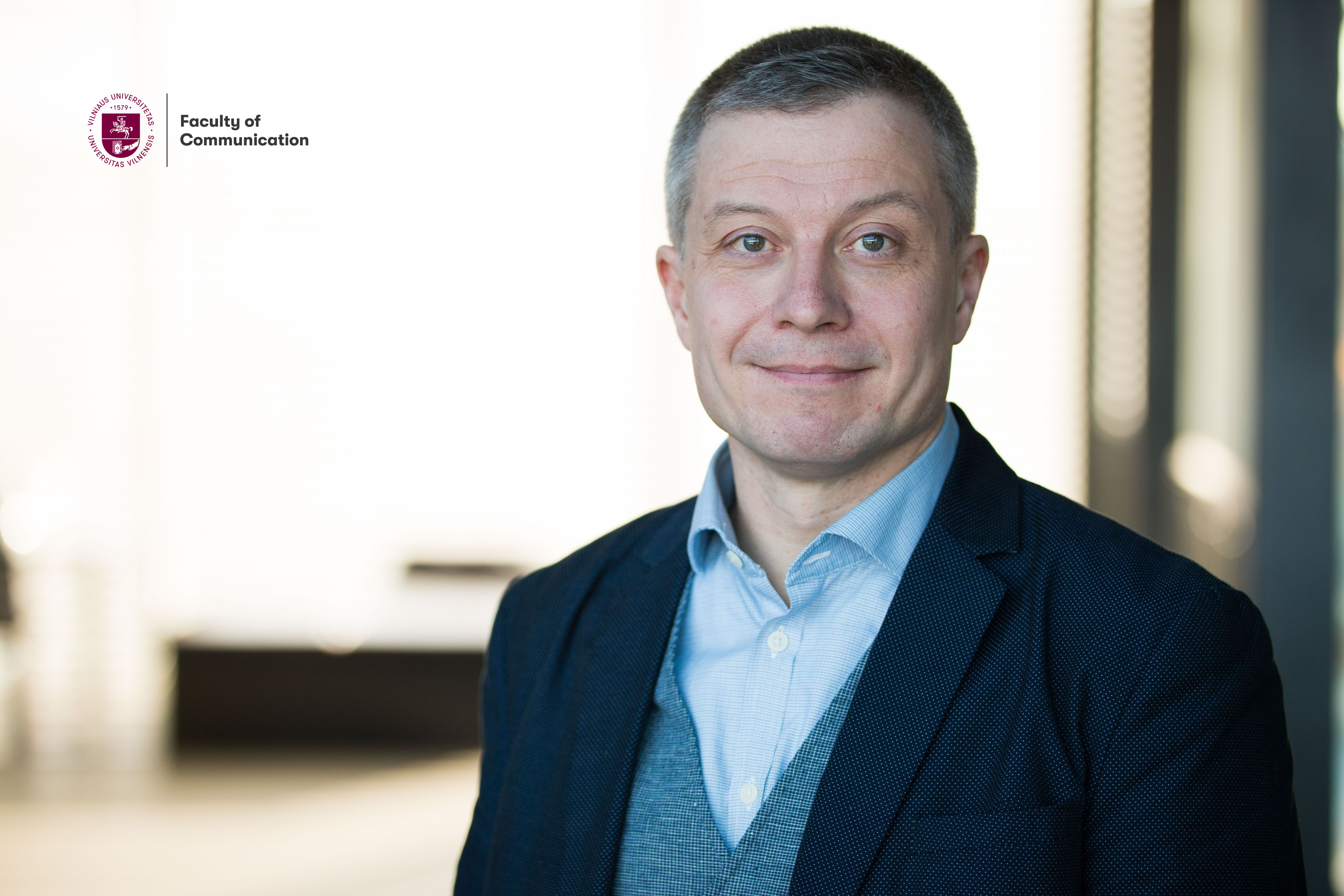 On April 28 – 29 2022 the Department of Organizational Information and Communication Research of the Faculty of Communication, Vilnius University, will hold its annual an international scientific conference, the aim of which is to encourage scientists and practitioners to present the results of theoretical and applied research and initiate scientific discussions on relevant information and communication topics. We invite you to read the conversation with the conference speaker, the professor Isto Huvila from Uppsala University (Sweden).
On April 28 – 29 2022 the Department of Organizational Information and Communication Research of the Faculty of Communication, Vilnius University, will hold its annual an international scientific conference, the aim of which is to encourage scientists and practitioners to present the results of theoretical and applied research and initiate scientific discussions on relevant information and communication topics. We invite you to read the conversation with the conference speaker, the professor Isto Huvila from Uppsala University (Sweden).
What is the main area of your research?
My research is about many things but the red thread that goes through it is that I am interested in how people get to know what they need to know in their work and free-time and how different technologies and ramifications impact how people get informed and are able to inform others—and how information, data and knowledge can be managed to better serve different goals people have. I have been working a lot with archaeologists and archaeological information management but has also been working on health information, libraries, archives, museums and private companies.
Why does your studies matter?
This is obviously a tricky question. What is the impact and relevance of my work? Even if much of what I do is about seeking understanding of and clarification to what people think about information, information systems, tools and sources they work with, why they choose certain ways forward and consider others less useful, a guiding perspective in my work stems from management. What I mean by this is that an ultimate aim of my work is to say something meaningful that helps people to do work better with information: to organise, preserve, share, document, manage, seek and retrieve it so that it is better available whenever it would be needed. This applies to all context of work whether the information is archaeological fieldwork data, medical record text, archival records or museum collections.
Why in your opinion the conference matters? What is the main goal?
I think that conferences matter very much in general. Exchange between scholars is crucial for the advancement of science in information and communication fields as it is in all scholarly domains. What I especially like about the themes of this year’s conference, is its focus on management issues. None of us has hardly failed to recognise during the past two years of for our generation extraordinary circumstances how important information and knowledge management and communication and how it is managed is for individuals, teams and organisations. Simultaneously, it has become ever more apparent how we really have to understand and think how things are communicated to be sensitive to differences in gender and culture, equal access and opportunities when we suddenly need to adapt our routines to a different kind of a reality we have not accustomed to. There is really a lot of demand for information, knowledge and communication management and a need to rethink certain ground truths we might have thought that would be here to stay.
What about you will speak in the conference?
I will talk about the documentation of information work, that is describing of how information is produced, managed and used. This is a question that is not always discussed in too much detail in comparison to how much ado there is about documentation of knowledge and information in terms of providing adequate metadata for finding and understanding what information is all about. It is obviously important to know what information (or data, or knowledge) is about but in many cases, it would be equally important to know a lot about how the information was produced, what decisions were made, what tools used, how it was processed, preserved, what was left out and why and so on. Such things are not always documented in very much detail—partly for a good reason and partly because —well they just aren’t.
How does this message relate to your other work? Why is it important to speak about?
Why this all is really interesting right now and at this conference is that this really is a key question or information and knowledge management and communication not least when we might not always have access to our usual means of finding out things that are normally communicated tacitly when we are together in the same physical place. In the talk you have to bear with several examples from archaeological and heritage domains but the issue is really the same across academic, professional and colloquial non-work contexts. We need to know not only where the information we rely on comes from and what it is but also how and why it looks like it does to be able to trust it. Similarly, it is equally important to understand how we could communicate in the best possible way our own doings with information we create to make it useful and trustworthy for others.
The conference organizers invite presentations in the following areas of research:
- Information and knowledge management in the organization
- Communication management in the organization
- Gender expression in communication and other socio-cultural contexts
The conference will be held in English and Lithuanian remotely.
We invite you to submit abstracts in English or in Lithuanian until 2022 February 15.
